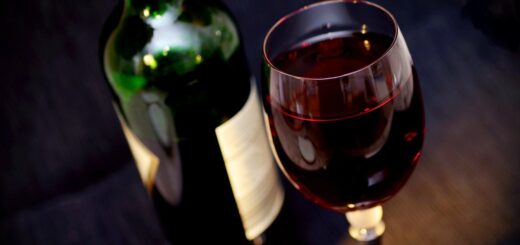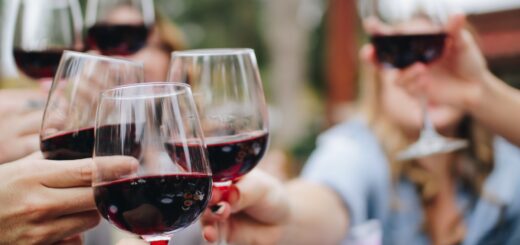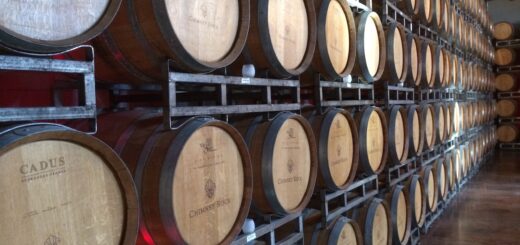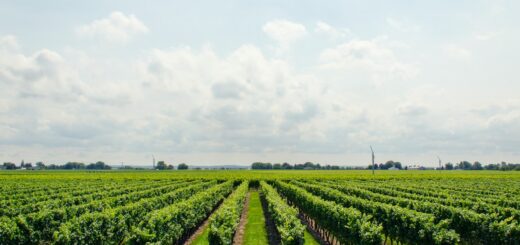Pascal Jolivet: winemaking in harmony with nature
Energetic and passionate, Pascal Jolivet is one of the brightest representatives of a new generation of winemakers in the Loire Valley. He is one of the few producers in the region to take an organic approach to winemaking. His refined wines from sauvignon blanc with pure aroma and taste have defined the style of wines from this varietal in the Loire Valley for many years to come.
Creating a brand
Pascal Jolivet has no special oenological education. All his winemaking knowledge and skills are the result of practical experience. Pascal’s grandfather was the cellar master at Chateau de Tray, the largest producer in Pouilly-Fumé at the time. He later founded his own company, Jolivet, to sell wines, and Pascal’s father continued the business by expanding it.
Pascal joined his father after university and worked with him for two years, at the same time working as a local Pommery Champagne representative. However, Pascal wanted to go into business for himself. In 1987 Pascal Jolivet created his own winemaking brand Pascal Jolivet, where he decided to realize the idea of terroir and natural wines. To implement the idea he invited oenologist Jean Luc Soti, who for almost three decades helped to implement Jolivet’s winemaking ideas. During this time the winery has grown from 6 to 120 hectares in three regions of the Loire valley: Touraine, Sancerre and Pouilly-Fumé.
Operating principles
The farm works according to the principles of organic viticulture: vineyards are treated only with copper sulfate and sulfur to prevent the emergence of pests and grape diseases. To reduce yields and prevent vines’ roots from appearing above the ground, grass is sown between the rows of vineyards. This allows the roots to go deep into the soil, which helps produce wines that best reflect the terroir. In addition, Jolivet purchases grapes from two small producers who practice organic and biodynamic approaches to grape growing.
The current Jolivet winery was designed in 2000 specifically to produce wine by gravity. The winery’s cellar is built on a hillside, at the very top point they accept grapes that have been hand-picked on special paths beforehand. The main task is to make sure that the berries are not damaged before pressing. The grapes fall at the top of the press, and the press press presses them only slightly. This is how the first juice is made, which is not clarified in any way, and then it is sent for fermentation with wild yeast. The next maturation on lees is fundamental to the concentration and complexity of all Jolivet wines. Fermentation lasts 1 to 4 months – as opposed to the usual 1 to 2 weeks – and because of this, acidity is gently integrated into the wines, giving them a more subtle flavor.
The two main varieties are
Sauvignon blanc is Pascal Jolivet’s favorite variety. He considers the Loire valley and especially Sancerre and Pouilly-Fumé to be the best growing areas for this variety because of the combination of soil and microclimate. The wines in these regions are simple but refined with mild acidity. The limestone soil of Sancerre adds minerality to the wines, while the flint soil of Pouilly-Fumé has a recognizable smoky touch.
Another of Pascal’s favorites is Pinot Noir, which until 1999 the winemaker was not very fond of. In order to make friends with it, Jolivet decided to build a wine cellar specifically for aging Pinot Noir in barriques, in contrast to what he did with Sauvignon Blanc wines, which were aged in steel vats. Jolivet reduced pinot noir yields and focused on vinification from individual plots. The result was not long in coming; the resulting wines had a fuller and more elegant flavor than before.
Loyalty to the idea
In 2013, following the departure of Jean-Luc Soty, Pascal hired a young and talented oenologist, Valentina Boisot, who, like her predecessor, shares the principles of the organic approach. With her help, local yeasts were researched, allowing Pascal to enhance the fruity character of his wines, as well as their elegance and precision. Since 2016, Jolivet has switched completely to organic winemaking and has been certified accordingly.
















Recent Comments